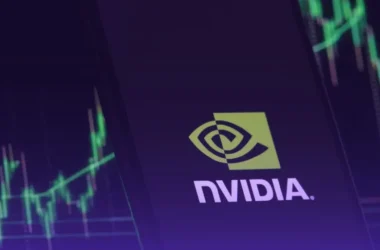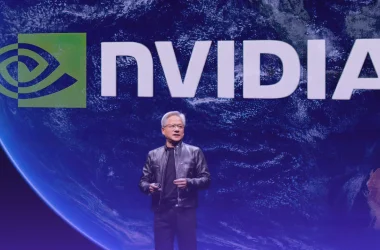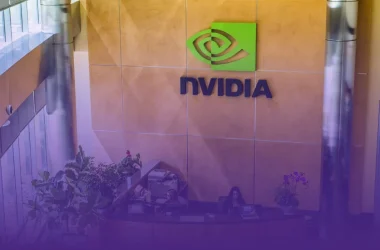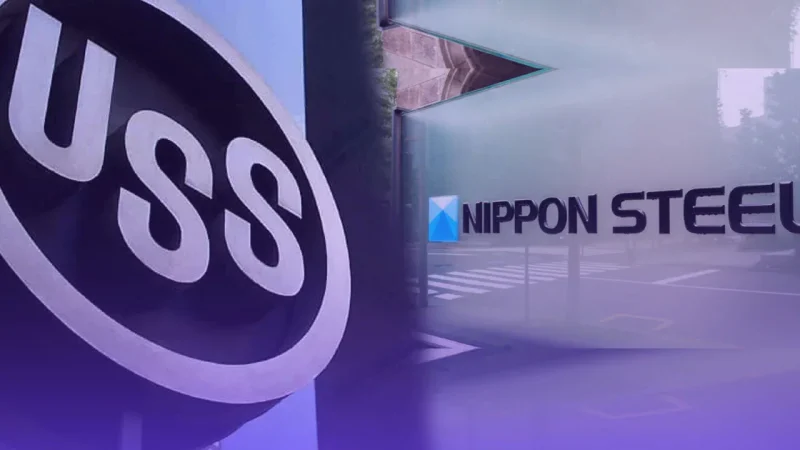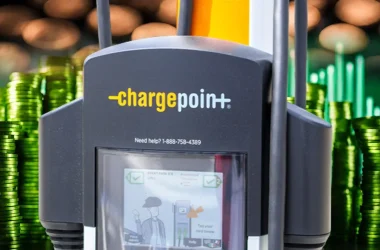In an unexpected end to the bidding war on U.S. Steel (NYSE: X) that was started by Cleveland-Cliffs (NYSE: CLF), the iconic American company founded by J.P. Morgan and Andrew Carnegie more than 100 years ago, agreed to a $14.1 billion takeover by the Japanese company Nippon Steel (OTCMKTS: NPSCY) back in December of 2023. X stock has been up by around 7% ever since, but it saw an upside of around 37% when the deal was first announced.
However, not everyone was happy with the news, as the deal would give Nippon Steel a strong foothold in the American steel industry and end the independence of one of the oldest industrial companies in the country, an idea that didn’t go down well with U.S. Steel workers, politicians and even the White House.
Nippon’s Largest Acquisition Ever
Nippon Steel has agreed to pay $14.1 billion to buy U.S. Steel, and this valuation, at $55 per share of X stock, represents a nearly 40% premium to U.S. Steel’s closing stock price on December 15. The news of the takeover caused X stock to soar. On the other hand, Nippon Steel shares fell more than 3% in Tokyo trading a day later as investors were skeptical over the acquisition being too big to handle.
The takeover would allow Nippon Steel, already one of the world’s largest steelmakers with a production capacity of 66 million tonnes a year, to increase that capacity to 86 million tonnes. This would make Nippon Steel the world’s second-biggest steel producer behind China Baowu Steel Group, which has an annual capacity of around 125 million. Additionally, the acquisition would bring Nippon Steel one step closer to its goal of 100 million tonnes.
The deal is set to be one of Nippon Steel’s largest acquisitions ever, aimed at strengthening the company’s position in the growing U.S. market, especially in its growing EV sector, in the midst of declining demand for steel products in Japan.
EV Benefits
The acquisition would give Nippon Steel access to specialized steel used in electric vehicle motors in the U.S.. This specialized steel is referred to as electrical steel, which is a niche segment that accounts for a bit more than 1% of global steel production, but is expected to rise quickly as more auto companies produce electric motors for EVs. It’s expected that electrical steel used by the auto industry in the U.S. will primarily come from U.S. Steel as it increases its production at its Big River Steel facility in Osceola, Ark., which the company acquired in 2021. This facility is expected to produce up to 200,000 tons a year of the steel used in EVs.
This would present Nippon Steel with a great opportunity, since the U.S. EV market is massive and growing rapidly. It was valued at $49.1 billion in 2022, and it is anticipated to grow at a CAGR of over 15.5% between 2023 and 2032. According to the two companies, the deal is expected to close by October this year, as they’re waiting for approval from U.S. Steel’s shareholders and regulators. Eiji Hashimoto, the president of Nippon Steel, said that by acquiring the American steel company, Nippon Steel will become a free-world champion in an industry dominated by China.
How U.S. Steel Became an Acquisition Target
U.S. Steel started attracting acquisition interest after some short-term challenges, which included upgrading furnaces and potential car production shutdowns due to labor strikes in the auto industry, took their toll on the company’s valuation. After it faced these challenges, U.S. Steel’s market value, including net debt, was equivalent to 3.6 times its projected 12-month EBITDA. When compared to its peers in the industry, we see how undervalued the company is. For example, Cleveland Cliffs, North America’s largest supplier of iron-ore pellets to the steel industry, had a market value equivalent to 5 times its projected 12-month EBITDA, while other companies like Nucor Corp (NYSE: NUE) and Steel Dynamics Inc. (NASDAQ: STLD) traded at 6.9 times and 5.8 times respectively.
The discount, along with the desire to eliminate competition and grow market share, caused Cleveland Cliffs to make an acquisition offer in July of last year, and it was followed by another company called Esmark Inc, which valued U.S. Steel at 6.2 times its 2024 EBITDA. That’s how U.S. Steel, the company founded 122 years ago by J.P. Morgan and Andrew Carnegie, found itself evaluating various offers for its business since August, having to navigate a bidding war that was started by the $7.25 billion offer from Cleveland-Cliffs.
Cleveland-Cliffs v.s. Nippon Steel
Cleveland-Cliffs dominated the domestic supply of the steel that is used in transformers, and the company saw an opportunity in getting into electrical steel by acquiring U.S. Steel. However, this deal raised many antitrust concerns as it would have moved 100% U.S. blast furnace production under one company. Not only that, it would have also seen 100% of electrical steel production in the U.S. consolidated under one combined company.
Therefore, it’s no surprise that this was a major source of concern for the auto industry. In fact, the Alliance for Automotive Innovation, which represents automakers, wrote a letter to Congress in October in which it rejected the proposed Cleveland-Cliffs-U.S. Steel deal. This is because having just one supplier of electrical steel would’ve led to increased costs and therefore slow EV sales. On the other hand, Nippon Steel’s acquisition could be more favorable to automakers because it would not monopolize the U.S. supply of electrical steel. Automakers could view this acquisition as a positive thing, as increased competition between suppliers is a good thing for buyers.
The Opposition to the Deal
Even though the deal could benefit automakers, many U.S. Steel employees feel the exact opposite about it. The United Steelworkers, who represent about 11,000 hourly production workers, aren’t happy with the Nippon deal. The union’s president, David McCall, said in a news release that the deal demonstrates a “greedy, shortsighted attitude that has guided U.S. Steel for far too long,” He also said that neither U.S. Steel nor Nippon Steel reached out to the union regarding the acquisition, which was in itself a violation of the partnership between the union and U.S. Steel, which requires the company to notify the union of a change in control or business conditions.
In their response to the union, U.S. Steel and Nippon Steel said that they would honor existing contracts with union-represented workers, and that the companies agreed on the importance of investing in employees. A perfectly diplomatic reply that doesn’t showcase the amount of opposition the deal faces. In fact, the workers aren’t the only people hating the deal since it’s also facing opposition from American politicians that don’t want a foreign firm to take control of an American company. These politicians included Democratic Sen. John Fetterman of Pennsylvania, the state known for its steel, who immediately vowed to do everything he can to stop the deal.
Additionally, Republican Sen. J.D. Vance said U.S. Steel remains critical to the American defense industrial base, and warned about the future implications of the sale for the American people. But the most dangerous opposition of all comes from the White House, as President Joe Biden believes that serious scrutiny is warranted for the planned acquisition, in terms of its potential impact on national security and supply chain reliability.
Very recently, the President vocally opposed the deal, saying that the U.S. needs to “maintain strong American steel companies powered by American steel workers.” and adding that “U.S. Steel has been an iconic American steel company for more than a century, and it is vital for it to remain an American steel company that is domestically owned and operated.”
By opposing the merger, President Biden has chosen to support the union’s workers in a critical election year, even though this risks upsetting the business community and an essential ally in Japan, and yet, despite the strong opposition, U.S. Steel said in a recent regulatory filing that the acquisition is still expected to close later this year.
The deal would still have to be reviewed by the secretive Committee on Foreign Investment in the United States, to see if it threatens U.S. interests in any way. If the deal ends up falling apart, Cleveland-Cliffs would be willing to make another bid for U.S. Steel, likely worth no more than $30 per share, according to CEO Lourenco Goncalves.
Do These Concerns Make Sense?
While it’s true that the Biden Administration promised to exert more control on foreign takeovers, the President’s main concern is probably China, especially because of the U.S.-China trade war that started a few years ago. The new statement from the White House comes before the elections, and Biden must’ve known that staying silent on an acquisition of an iconic American company by a foreign firm wouldn’t be a good look as he runs again.
Nippon Steel does have Chinese assets, which raised the Biden’s concerns over the company’s connections to China, but Nippon Steel responded to these concerns recently, releasing a statement that said that its purchase of U.S. Steel would strengthen American supply chains and economic defenses against China. Additionally, it specified that its operations in China are very limited, as they represent less than 5% of its global production capacity, with only downstream business and no upstream facilities such as blast furnaces or electric arc furnaces which constitute a major portion of investments in the steel industry.
It also said that it remained committed to the union workers, as there will be no layoffs or plant closures until September 2026 under some conditions. The company also promised that, at the close of the transaction, U.S. Steel will additionally invest $1.4 billion, increasing the current collective bargaining agreement by over 140%.
In addition to that, U.S. Steel’s equipment isn’t being relocated to Japan, and aside from the electrical steel used in EVs, there’s nothing new in steel technology that could raise concerns of intellectual property theft. What’s more, the U.S. has had foreign owners, including Japanese, of some steel assets for decades, and many foreign automakers in the U.S. employ hundreds of thousands of foreign workers in U.S. plants with no problems. With all of this in mind, these political concerns make no sense. However, this strong opposition to the deal indicates the harsh battle U.S. Steel and Nippon Steel will have to fight to overcome these obstacles.
X Stock Forecast
Investors who bought X stock previously were probably over the moon when it saw the 37% surge, even though it didn’t continue. Even though the two companies believe the acquisition will happen, there’s still a lot of risk and investors need to watch out for regulatory issues.
For investors who don’t mind this risk, it might be a good idea to hold onto their shares of X stock, especially since an increase in its X stock price could happen if the deal closes. The Committee on Foreign Investment in the United States might not block the deal, since its main concern is national security, and Japan is a major U.S. ally in a critical region.
Disclaimer
Please visit and read our disclaimer here.

